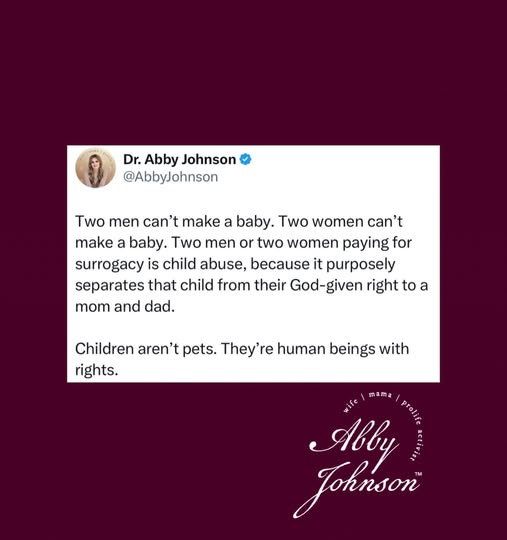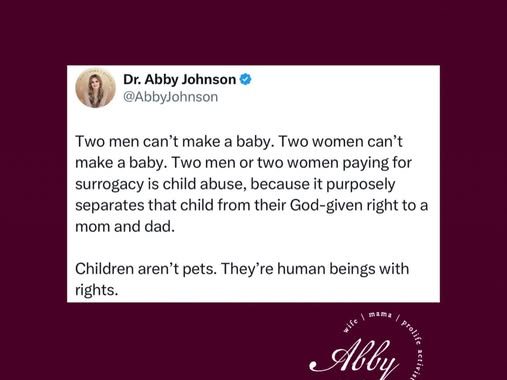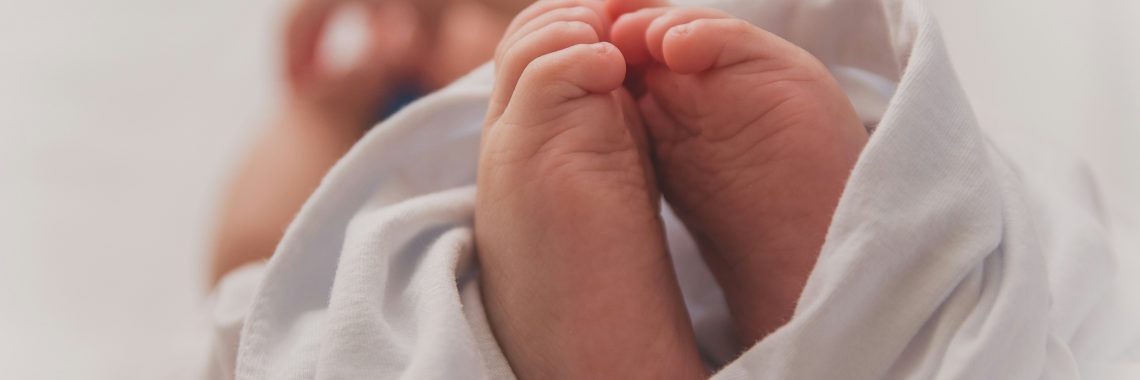Pro-Life Advocate Speaks Out Against Surrogacy

Pro-life advocate Dr. Abby Johnson recently posted a statement on social media opposing surrogacy, calling it “child abuse.”
Dr. Johnson was a Planned Parenthood clinic director until 2009, but she became pro-life after witnessing an ultrasound-guided abortion. Today she is a pro-life author and speaker and an advocate for women and unborn children.
In a statement posted last week, Dr. Johnson criticized gestational surrogacy, saying:
Two men can’t make a baby. Two women can’t make a baby. Two men or two women paying for surrogacy is child abuse, because it purposely separates that child from their God-given right to a mom and dad. Children aren’t pets.
They’re human beings with rights.
We have written many times about how surrogacy — especially commercial surrogacy — exploits women and hurts children.
In commercial surrogacy arrangements, corporate agencies hire women to carry children for paying customers.
Unlike many other countries, the United States has relatively few regulations when it comes to surrogacy — and that’s a problem.
Last year, news outlets reported that a sex offender convicted of crimes involving children was able to obtain a child through surrogacy in Pennsylvania as a result of lax state regulations.
The New Yorker reported last week that a wealthy couple in Los Angeles allegedly used a surrogacy agency they operated to hire dozens of women across the U.S. to carry more than 20 children for them. According to the magazine, the children were removed from the home and placed in foster care after one of them was hospitalized with injuries “consistent with ‘those sustained during a car accident or from being shaken.'”
Last year The Wall Street Journal uncovered how Chinese billionaires are exploiting America’s surrogacy industry to create what some call “mega-families” with dozens or even hundreds of children.
The Wall Street Journal also has written about allegations of financial fraud among commercial surrogacy businesses.
In December, The New York Times and NBC News both reported about investigations into a surrogacy agency that abruptly shutdown, causing clients to lose an estimated $2 – $5 million total.
Stories like these underscore why social commentators and policymakers worldwide have raised concerns about commercial surrogacy and how it financially pressures women.
It’s bad when commercial surrogacy goes wrong — but it’s important to remember that surrogacy never “goes right” either.
Commercial surrogacy deliberately deprives children of their biological mothers or fathers.
It treats pregnancy like a “service” that can be purchased.
It treats women like commodities, and it treats children like products that can be made to order and sold for profit.
Commercial surrogacy also relies heavily on in vitro fertilization and other reproductive technologies that have serious problems of their own.
Family Council has opposed commercial surrogacy in Arkansas, but unfortunately, Arkansas’ commercial surrogacy laws are very lax.
Since 2017, Family Council has supported legislation to prohibit commercial surrogacy in Arkansas. So far, those restrictions have not passed.
Human beings are not products that can be made to order, bought, and sold. That’s why Family Council opposes commercial surrogacy — and why we will continue to oppose it.
Articles appearing on this website are written with the aid of Family Council’s researchers and writers.





